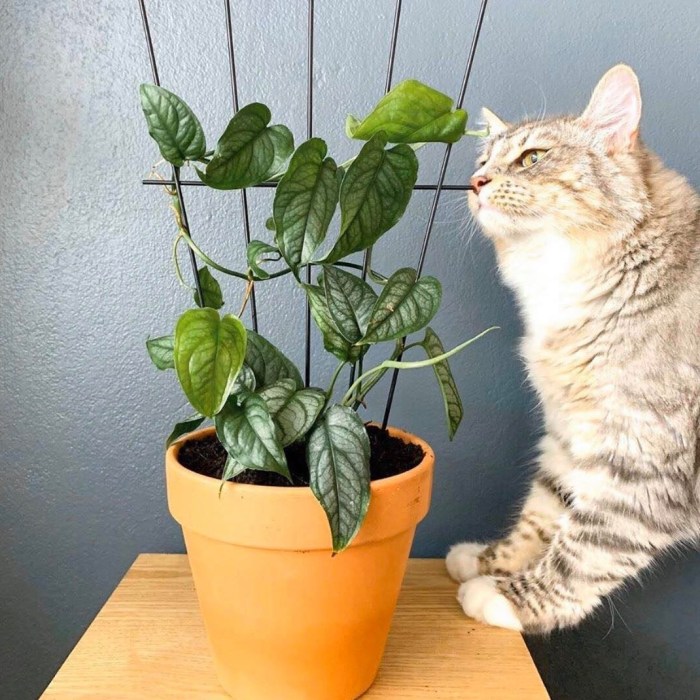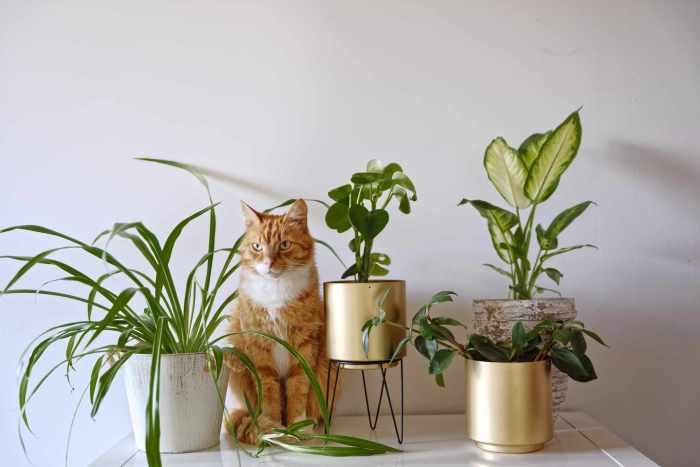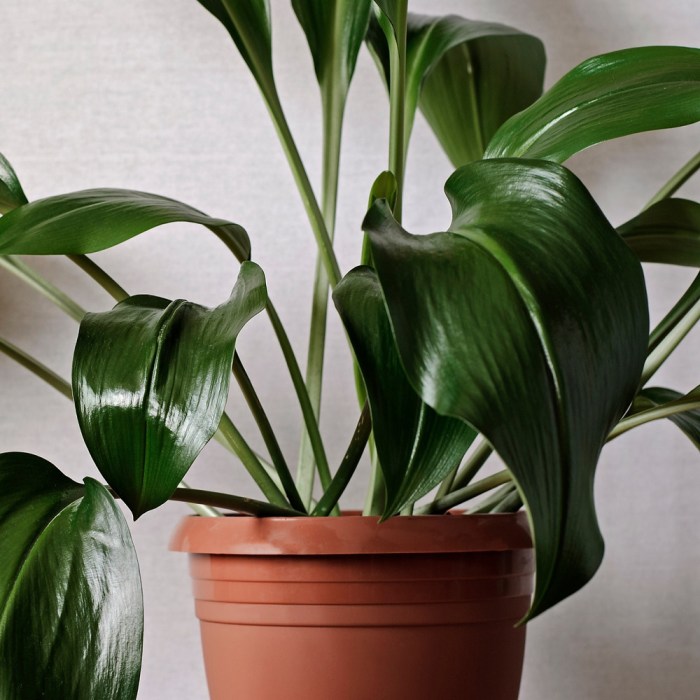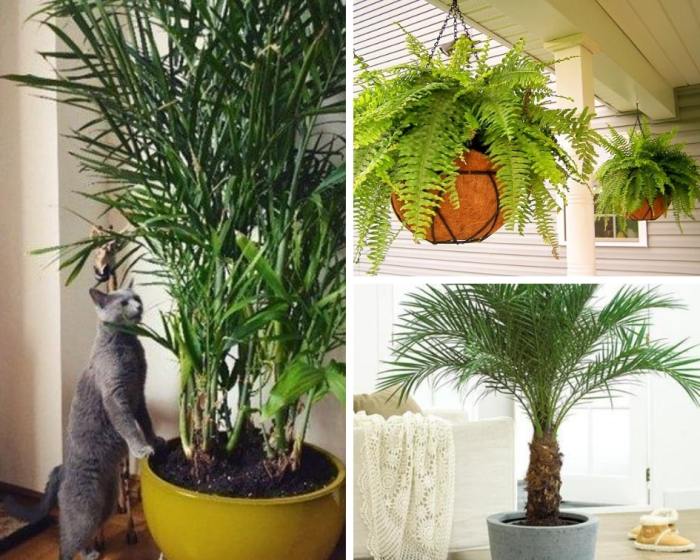Are hanging plants safe for cats? This question lingers in the minds of many cat owners who adore greenery but prioritize their pet’s well-being. Understanding the potential risks and benefits is crucial to create a harmonious and safe living space for both cats and plants.
Navigating the world of hanging plants and cats requires a delicate balance. Some plants can pose a threat to feline health, while others offer aesthetic appeal without compromising safety. This comprehensive guide will delve into the intricacies of plant toxicity, placement, and care, empowering cat owners to make informed decisions and cultivate a cat-friendly indoor oasis.
Plant Toxicity and Identification

Cats are curious creatures that love to explore their surroundings, and this includes nibbling on plants. While some plants are safe for cats to eat, others can be toxic and cause serious health problems.
If you’re thinking about adding hanging plants to your home, it’s important to do your research and make sure that the plants you choose are non-toxic to cats. Here’s a table of some common hanging plants that are toxic to cats, along with their scientific names and toxicity levels:
| Plant Name | Scientific Name | Toxicity Level |
|---|---|---|
| Bird of Paradise | Strelitzia reginae | Mild to moderate |
| Dieffenbachia | Dieffenbachia spp. | Moderate to severe |
| English Ivy | Hedera helix | Mild to moderate |
| Jade Plant | Crassula ovata | Mild |
| Pothos | Epipremnum aureum | Mild to moderate |
If you’re looking for hanging plants that are safe for cats, here are a few options:
- Spider Plant ( Chlorophytum comosum)
- Prayer Plant ( Maranta leuconeura)
- ZZ Plant ( Zamioculcas zamiifolia)
- Air Plant ( Tillandsia spp.)
- Boston Fern ( Nephrolepis exaltata)
Plant Placement and Accessibility

Keeping hanging plants out of reach of cats is crucial to prevent potential health hazards. Cats are curious creatures and may be tempted to nibble on plants, even those that are toxic to them. Ingesting toxic plants can lead to various health issues, including vomiting, diarrhea, seizures, and even death.
Secure Hanging
To prevent accidental falls that could injure your cat or damage the plant, it’s essential to hang plants securely. Use sturdy hooks and brackets that can support the weight of the plant and its pot. Ensure the hanging system is stable and unlikely to come loose.
Inaccessible Placement
Place hanging plants in areas where cats cannot easily access them. Consider hanging them high on walls or from the ceiling, or placing them on shelves or tables that are too high for cats to jump onto. By keeping plants out of reach, you minimize the risk of your cat ingesting toxic substances and ensure their safety.
Plant Care and Maintenance
Proper plant care is essential for minimizing potential risks to cats. Watering, pruning, and the use of fertilizers and pesticides can all impact plant toxicity.
Regular watering helps dilute toxins in the plant, making them less concentrated. Pruning removes old or damaged leaves, which may contain higher levels of toxins. However, overwatering can lead to root rot, making the plant more susceptible to disease and potentially increasing toxin production.
If you’re wondering if hanging plants are safe for your feline friends, you’ll want to choose pet-friendly options. For a convenient and low-maintenance solution, consider self watering hanging baskets bunnings . These baskets can provide your plants with a steady supply of water, giving you peace of mind that your plants are thriving even when you’re away.
As always, remember to check the toxicity of any hanging plants you choose to ensure they’re safe for your furry companion.
Fertilizers and Pesticides
Fertilizers and pesticides can increase plant toxicity. Fertilizers provide nutrients that can stimulate toxin production, while pesticides can contain toxic chemicals that are harmful to both plants and animals.
Before considering hanging plants for your home, it’s crucial to determine if they are safe for cats. While many hanging plants are non-toxic, there are some that can be harmful. If you’re looking for a safe and stylish way to add greenery to your space, consider exploring the range of hanging fence planters bunnings offers.
These planters can be easily hung on fences or walls, providing a safe and elevated display for your plants. Remember, always check the toxicity of any plant you intend to bring home to ensure the safety of your feline companion.
When using fertilizers, choose organic options and follow the instructions carefully. Avoid using pesticides indoors, especially in homes with cats. If pesticides are necessary, opt for pet-safe formulations and apply them according to the label instructions.
Safe Plant Care Practices
- Choose non-toxic plants or keep toxic plants out of reach of cats.
- Water plants regularly, but avoid overwatering.
- Prune plants regularly to remove old or damaged leaves.
- Use organic fertilizers and avoid pesticides indoors.
- Monitor cats closely around plants and seek veterinary attention if any symptoms of poisoning are observed.
Symptoms of Plant Poisoning

Recognizing the symptoms of plant poisoning in cats is crucial for timely intervention and proper treatment. If you suspect your cat has ingested a toxic plant, immediate action is essential to minimize the severity of the poisoning.
Common symptoms of plant poisoning in cats include:
- Gastrointestinal upset (vomiting, diarrhea, abdominal pain)
- Skin irritation (redness, itching, swelling)
- Respiratory problems (difficulty breathing, coughing, wheezing)
- Neurological issues (seizures, tremors, disorientation)
- Lethargy or weakness
It’s important to note that these symptoms can vary depending on the type of plant ingested and the amount consumed. If you observe any of these symptoms in your cat, it’s essential to seek veterinary attention immediately.
While some hanging plants can be toxic to cats, there are a variety of cat-friendly options available, including bunnings hanging ferns . These ferns are not only safe for cats but also provide a touch of greenery and elegance to any room.
If you’re looking for a way to add some life to your home without putting your furry friend at risk, consider adding a hanging fern to your collection.
Emergency Contacts for Veterinary Care
In case of plant poisoning, it’s crucial to have emergency contact information for veterinary care readily available. Here are some resources:
- Your local veterinarian
- Animal Poison Control Center (APCC): (888) 426-4435
- ASPCA Animal Poison Control Center: (888) 426-4435
By recognizing the symptoms of plant poisoning and seeking prompt veterinary attention, you can increase your cat’s chances of a successful recovery.
Alternative Plant Options
For cat owners who want to enjoy the beauty of hanging plants without putting their furry friends at risk, there are several safe and attractive alternatives to consider.
These plants not only provide a touch of greenery to your home but also come with varying appearances and care requirements to suit different preferences.
Recommended Safe Hanging Plants, Are hanging plants safe for cats
Here’s a table showcasing some popular cat-friendly hanging plants:
| Plant Name | Appearance | Care Requirements |
|---|---|---|
| Spider Plant | Long, cascading leaves with variegated green and white stripes | Bright, indirect light; water when soil is dry to the touch |
| Burro’s Tail | Trailing stems with plump, fleshy leaves resembling a donkey’s tail | Bright, indirect light; water sparingly, allowing soil to dry out completely between waterings |
| String of Pearls | Long, trailing stems with small, round, bead-like leaves | Bright, indirect light; water when soil is dry to the touch |
| Hoya Heart | Trailing stems with heart-shaped, variegated leaves | Bright, indirect light; water when soil is dry to the touch |
| Peperomia Ruby Cascade | Trailing stems with small, rounded leaves with a deep burgundy color | Bright, indirect light; water when soil is slightly dry |
Creating a Cat-Friendly Hanging Plant Display
To create a safe and appealing hanging plant display for your cat-friendly home, consider the following tips:
- Suspend plants high enough to prevent your cat from reaching them.
- Choose plants with non-toxic foliage and avoid placing them near areas where your cat spends a lot of time.
- Use hanging baskets with drainage holes to prevent waterlogging and root rot.
- Provide your cat with alternative enrichment activities, such as scratching posts, toys, and catnip, to discourage them from chewing on plants.
Last Word

In conclusion, ensuring the safety of hanging plants for cats requires a multifaceted approach. By carefully selecting non-toxic plants, placing them out of reach, and adhering to proper care practices, cat owners can create a vibrant and harmonious living environment where both feline companions and botanical wonders thrive.
Frequently Asked Questions: Are Hanging Plants Safe For Cats
Can all hanging plants harm cats?
No, not all hanging plants are toxic to cats. Many non-toxic options are safe for feline companions.
How can I identify toxic hanging plants?
Refer to reputable sources such as the ASPCA or consult with a veterinarian to determine the toxicity of specific plants.
What are the symptoms of plant poisoning in cats?
Symptoms may include vomiting, diarrhea, lethargy, and difficulty breathing. Seek immediate veterinary attention if you suspect poisoning.